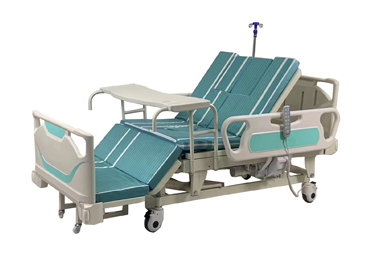Welcome to our websites!
Innovative Smart Beds Revolutionizing Patient Care in Healthcare Facilities
The Rise of Smart Beds in Healthcare Transforming Patient Care
In recent years, the healthcare industry has witnessed a remarkable transformation through the integration of technology, particularly in patient care environments. One of the most significant innovations in this realm is the advent of smart beds, which are designed to enhance patient comfort, safety, and overall care. This article explores the features, benefits, and implications of smart beds in healthcare settings.
What are Smart Beds?
Smart beds are advanced medical beds equipped with technology that allows for real-time monitoring and control. They can be integrated with sensors, automation, and connectivity, enabling healthcare professionals to track a patient's vital signs, movements, and comfort levels. These beds can automatically adjust positions to improve patient comfort, reduce pressure sores, and facilitate better healthcare delivery.
Key Features of Smart Beds
1. Real-Time Monitoring Smart beds can monitor vital signs such as heart rate, respiratory rate, and oxygen saturation. This data is transmitted in real time to healthcare providers, allowing for immediate intervention if a patient's condition deteriorates.
2. Position Adjustment These beds can adjust their height, head, and foot positions automatically or via remote control. This feature not only enhances patient comfort but also aids in medical procedures and promotes better posture to prevent complications.
3. Safety Alerts Smart beds are equipped with fall detection systems that can alert staff if a patient attempts to get out of bed unassisted. This functionality significantly reduces the risk of falls, which is a major concern in healthcare facilities.
5. Enhanced Hygiene Some smart beds come with antimicrobial surfaces and features that support easy cleaning. This is essential in reducing hospital-acquired infections (HAIs), a major concern in healthcare settings.
Benefits of Smart Beds
smart beds in healthcare

The implementation of smart beds offers numerous benefits for both patients and healthcare providers
1. Improved Patient Outcomes By continuously monitoring vital signs and adjusting the bed's position, smart beds contribute to better patient outcomes, such as reduced pressure ulcers, lower rates of readmission, and improved overall recovery.
2. Increased Efficiency in Care Delivery With real-time data access, nurses and clinicians can respond to patient needs more quickly, allowing them to focus on other critical areas of care. This efficiency can lead to better use of resources and improved workflow within healthcare facilities.
3. Enhanced Patient Experience Patients in smart beds often report improved comfort and satisfaction. The ability to adjust their own bed positions, coupled with real-time monitoring, can lead to a more personalized and comfortable healthcare experience.
4. Reduction in Healthcare Costs Although the initial investment in smart bed technology can be significant, the long-term savings generated by improved patient care, reduced complications, and better resource management can outweigh these costs.
Challenges and Considerations
Despite the numerous advantages of smart beds, their adoption does not come without challenges. For instance, the high costs associated with purchasing and maintaining these beds can be a barrier for many healthcare facilities, particularly smaller ones. Additionally, ensuring data privacy and security in the digital age is paramount, as smart beds collect and transmit sensitive patient information.
Moreover, staff training is essential to maximize the benefits of smart beds. Healthcare providers must be well-versed in the technology to effectively utilize its features and interpret the data it provides.
Conclusion
Smart beds are revolutionizing patient care in healthcare facilities, offering sophisticated technology that enhances safety, comfort, and efficiency. As the healthcare landscape continues to evolve, the integration of smart beds will play a critical role in improving patient outcomes and streamlining care delivery. While challenges remain, the potential benefits of this technology make it a worthwhile investment for the future of healthcare. Embracing smart beds represents a significant step forward in creating a more responsive and patient-centered healthcare environment.
-
Transforming Healthcare with Hospital FurnitureNewsJun.24,2025
-
Rehabilitation EquipmentNewsJun.24,2025
-
Mobility and Independence with WheelchairsNewsJun.24,2025
-
Freedom of Mobility with Our Rollator WalkersNewsJun.24,2025
-
Comfort and Independence with Commode ChairsNewsJun.24,2025
-
Bathing Safety and Independence with Shower ChairsNewsJun.24,2025
-
Navigating the Wholesale Landscape of Electric Mobility Solutions: Key Considerations for Power Wheelchair DealersNewsJun.10,2025











